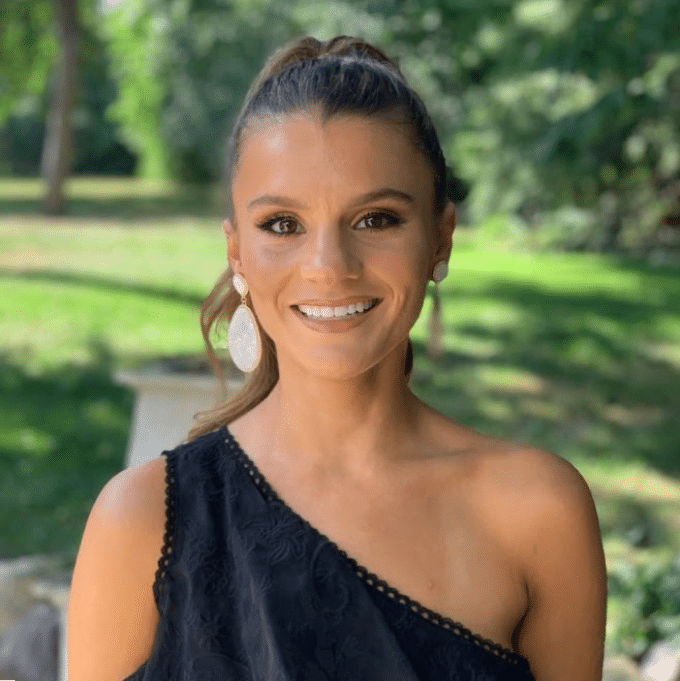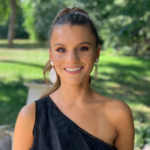The Wellbeing 5 Project
Dr. Samantha Shebib, Ph.D.
Psychologist and Interpersonal Social Scientist
The Relationship Wellbeing 5
5 Simple Questions to help with relationship wellbeing with answers from Experts, Thought Leaders, Campaigners & Advocates
Dr. Samantha Shebib, Ph.D.
Dr. Shebib is a social scientist studying interpersonal and the dark side of relationships. She is an expert with the American Psychological Association.
Dr. Shebib holds a bachelors of science from Hugh Downs School of Communication, Master’s of Science in communication and a Ph.D. focusing on advanced statistics and experimental design, in addition to interpersonal and family communication. Dr. Shebib is currently a postdoctoral teaching fellow in the Department of Languages, Philosophy, and Communication Studies at Utah State University.
Dr Shebib has won multiple awards including; MSU Educator Award, Student Leadership and Service Award, NCA’s Top Master’s Thesis Award, Top Master’s Thesis Award & Outstanding Alumni Award from Illinois State University.
Find out more about Dr. Shebib here.

The Relationship Wellbeing 5 with Dr. Samantha Shebib, Ph.D.
1. What is your favourite quote, anecdote, proverb or experience that helps with relationship wellbeing?
Dr. Shebib: “I’ve learned that people will forget what you said, people will forget what you did, but people will never forget how you made them feel.” — Maya Angelou
2. What is your top piece of advice for relationship wellbeing?
Dr. Shebib: How we communicate really matters. Blaming statements, defensiveness, and criticism fuel conflict. During disagreements, it’s easy to speak and act without intention. In these moments, we may say things or behave in ways that we later regret and damage our relationships.
When triggered, take time to ground yourself before you react. You may need to tell your loved one that you need a little time to calm down so you can respond with a clear head. This might mean going for a walk, taking some deep breaths, and other healthy ways to work through big emotions. Then, from a place of calm, address the issue. Words, body language, tone, and intention have the power to connect or divide.
When we practice healthy communications and respond from a place of calm, it has a powerful effect on our relationships.
3. What is the one change in the world that you would like to see? (in your area of wellbeing or in the world in general or both)
Dr. Shebib: In the word, I would like people to be more kind to each other—The reciprocity of being kind spills onto others and the spiraling effects are truly remarkable. Remember everyone is facing a battle you know nothing about. Always be kind.
For relational well-being, I would like to change the misconception that conflict is bad. That’s simply not true. Conflict is a sign that two people are involved in each other’s lives. The fact people fight means they care. However, it is all in how you communicate during conflict that impacts relational well-being, not the mere frequency of disagreements. When differences are handled cooperatively, conflict can improve relationships by helping partners solve problems and understand each other.
4. Which resources (books / websites / videos etc) for relationship wellbeing would you recommend?
Dr. Shebib:
The Relationship Cure by John Gottman, Ph.D.
The Seven Principles for Making Marriage Work by John Gottman, Ph.D.
The 5 Love Languages: The Secret to Love that Lasts by Gary Chapman
Red Rock Relationships Podcast (check out this episode)
How to Be an Adult in Relationships by David Richo
5. What’s the one thing that always makes you smile?
Dr. Shebib: Mentoring students. I love when my passion of teaching and research in relational communication incites passion in them
Further Exploration - Dr. Samantha Shebib, Ph.D.

Website: Dr. Samantha Shebib
Dr. Shebib's containing information about her, her publications, teachings, awards, student testimonials and press appearances.

Podcast: Don't Get Duped Online
Dr. Jose Rodriguez's webinar featuring Dr. Shebib discussing the power of mindful communication in troubling times. Discussion includes; defining deceptive messages, promoting thoughtful media literacy and encouraging proactive engagement in mediated contexts.

Article: Can a Close Sibling Relationship Strain Other Sibling Bonds?
Psychology Today article featuring Dr. Shebib and her study understanding how our relationship with one sibling might affect our relationship with other siblings.
Social Media - Connect with Dr. Shebib below
More Relationship Wellbeing 5 Interviews Below

More love & relationship Wellbeing 5 Interviews
With answers from experts, thought leaders, advocates and campaigners to help with love & relationship wellbeing



